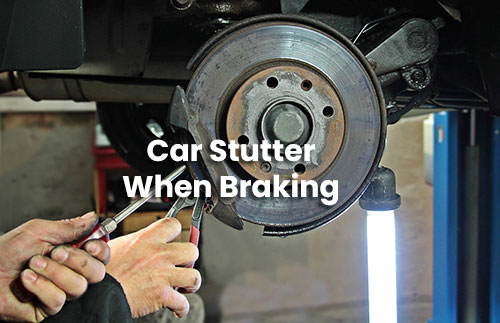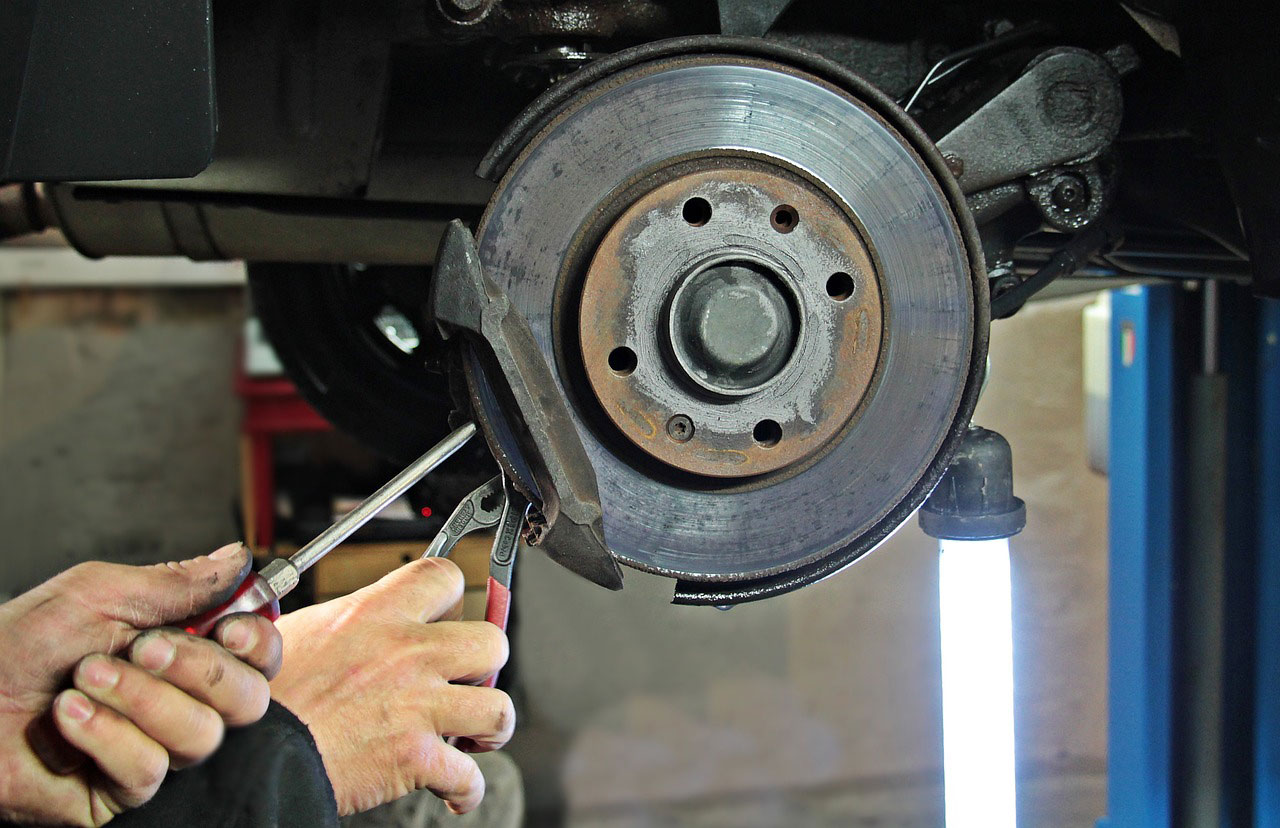Why Does Car Stutter When Braking? How to Deal

If your brake rotors are out of balance, they may cause the car to stutter, jerk or vibrate when you brake. This can be a problem in wet or icy conditions because the brake pads make contact with the rotor surface in a way that causes pulsation. Out-of-balance rotors can also cause the car to stop more quickly than it should, or to vibrate more violently than usual. If you notice any of these symptoms, it's important to have your brakes checked as soon as possible.

Damaged or Worn Brake Pad
1. Worn brake pads can cause your vehicle to produce strange noises when braking.
When your brake pads are worn, they may start to make strange noises when braking. This can cause your vehicle to feel less stable when braking, and may even lead to a loss of control. If you experience any of these symptoms, it is important to have your brakes checked as soon as possible.
2. Worn brake pads will decrease your braking performance.
Making it harder to stop your vehicle in an emergency situation. Brake pads are a vital part of your car's braking system. When you press down on the brake pedal, the pads make contact with the rotors and stop the car. If your brake pads are worn down, they won't provide as much friction against the rotors, which will result in a decrease in braking performance. Brake pads can also become contaminated with dust and debris, which can also cause a decrease in braking performance. In order to maintain optimal braking performance, it's important to have new brake pads installed every few months or when they start to show signs of wear.
3. Worn brake pads can damage your vehicle's rotors.
This can lead to even more expensive repairs down the road. Brake pads are designed to slow or stop your vehicle. When brake pads wear down, they can no longer do their job properly. This can cause your rotors to become damaged. Rotors are the metal discs that provide friction when you apply the brakes. If they become damaged, it can lead to a lot of problems with your car, including decreased braking ability and even a potential crash. If you notice that your brakes are not stopping as well as they used to, it may be time to replace your brake pads.
4. Worn brake pads can cause your vehicle's brakes to feel "spongy".
It means less responsive when you press the pedal. Brake pads are a vital part of your car's braking system. When they wear down, the brake pads can become "spongy." This can cause your car to stop suddenly and make it difficult to control. If you notice that your brakes feel spongy, you should replace your brake pads as soon as possible.
When your brake pads wear out, they no longer provide the necessary friction to stop your car. This can lead to dangerous driving conditions, as well as potential damage to your vehicle. It is important to replace worn brake pads as soon as possible to avoid any further damage and ensure optimal safety while driving.
Front or Back Rotor Problems
1. Rotors are important for a car's braking system and help to ensure timely and effective stopping power.
One of the most important components of a car's braking system is the rotor. Rotors are important for a car's braking system and help to ensure timely and effective stopping power.
Rotors are made out of metal or plastic and have a number of small, sharp blades attached to them. When the brake pedal is pushed, the rotor spins and causes the blades to hit the surface that you're braking on. This creates friction and stops your car.
A good quality rotor will last for many years, but if it starts to wear down then it will need to be replaced. It's important to keep an eye on your brakes as they can become less effective over time, so it's worth having them checked regularly by a mechanic.
2. Without properly functioning rotors, a car's braking system can be less effective, which can be dangerous.
A car's braking system is responsible for slowing the vehicle down by converting kinetic energy into heat. If the rotors do not function properly, the braking system may be less effective. This can lead to a dangerous situation as the car may not be able to stop in time. In extreme cases, this could result in a crash. It is important to have your rotors checked regularly by a mechanic to make sure they are functioning properly and preventing any potential accidents.
3. Rotors typically need to be replaced after a certain amount of wear and tear.
It is important to keep an eye on their condition and replace them as needed. Rotors are typically replaced after a certain amount of wear and tear. This can depend on the type of rotor, but generally they will need to be replaced every few thousand miles or sooner if there is significant damage. Rotors are usually replaced with new ones, although sometimes they can be repaired.
4. There are different types of rotors available for cars.
It is important to choose the right type for your vehicle. The type of rotor that a car uses depends on the make and model of the car. There are two main types of rotors - cast iron and alloy. Cast iron rotors are heavier and last longer than alloy rotors, but they are also more expensive. Alloy rotors are lighter and more affordable, but they may not last as long as cast iron rotors.
5. Properly maintained rotors can help extend the life of your car's brakes and improve its overall performance.
Rotor maintenance is important to ensure that your car's brakes work properly. Properly maintained rotors can help extend the life of your car's brakes by reducing the amount of friction that the brake pads create. Rotors can also be resurfaced, which will restore their original shape and performance.
Car Stutter When Braking Summary
In summary, here are few possible things that can cause a car stutter when braking:
- The car may be low on brake fluid.
- The brake pads may be worn out and need to be replaced.
- The brake rotors may be warped and need to be replaced.
- There could be a problem with the brake calipers or other brake components.
- The car's engine may be misfiring, causing the car to jerk when braking.





